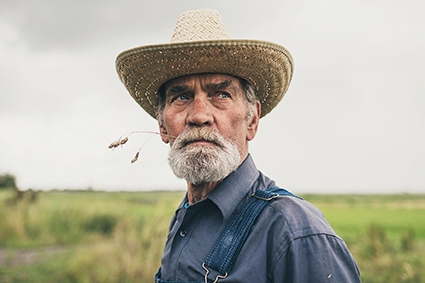The Roots of the Problem
Op-Ed
When I first arrived in this country, it was a frequent vexation that because I’m an Englishman, Georgians assumed I came from London; I’ve known Americans similarly annoyed that everyone thought they came from New York. Over time, I came to understand that in Georgia, outside the capital, opportunities are few and far between, and Georgians applied that same logic to other countries: when I explained to one man that I was from the borderlands of England and Wales, he looked at me aghast, as though picturing in his mind’s eye a rainy, grey scene of shepherds and wooden hovels, and said ‘But…what do you do in England if you are not from London?’ The true answer to that is ‘count your lucky stars,’ for Londoners are a breed apart from the rest of us, or so we like to say; in truth, I have met many Londoners who reinforce the stereotype of their kind not knowing a damn thing about the rest of the country, whose lives begin and end in the capital. Ghastly.
Yet as I came to know Georgia better, I understood that man’s reaction to my question, and to the way he treated me thereafter, which was something close to pity. For although Tbilisi-Georgians will boast about the beauty of the country’s various regions, they don’t think too highly of their inhabitants, and it does not take long for resident foreigners here to learn that when describing a person as ‘village,’ they are implying ignorance, a lack of education, and no refinement.
The lack of opportunities elsewhere in the country has led to a flood of people from the regions moving to this already-overpopulated capital city, but, really, one cannot blame them. I’ll agree with Georgians that their rural regions are naturally beautiful, but there really isn’t much to do beyond the scattered hotel resorts: it’s actually almost frightening when you see people just squatting by the roadsides, staring at any car that goes past simply because that’s apparently the only way to pass the time.
As with most things in life, the only thing that will change this situation is a flood of money, and Georgia is rather short of the stuff (although if the government cut back the millions it gives to the church, it might have more to go around). Prioritizing budgetary spending is a conundrum for any country, but one can see why Georgia has invested so much in tourism: it is, after all, a lovely place to visit, and on a personal note I’m seeing increasing numbers of Westerners coming for a holiday, especially for the skiing.
But Georgia’s agriculture remains woefully underdeveloped, which is especially staggering for a predominantly rural country, and the vast majority of produce in supermarkets is imported from elsewhere. If more money were invested in agriculture, perhaps Georgia could grow the majority of the food it eats, which in turn would create opportunities in the countryside and stem the flow of migrants to the capital city. Making farming attractive would be another challenge, however; everyone wants an office job to the point that degrees have become badly devalued. It is a recurring joke amongst foreigners and Georgians alike that many taxi drivers have Master’s degrees.
Without enough cash of its own, the simple solution for the Georgian government would be to attract foreign investment, which it did for a time until it suffered a fit of nationalist sentiment and banned the sale of land to foreign citizens. Madness, you might think; madness and stupidity. And you’d be right, but both of those seem to go hand in hand with the populist movements of the day. It does strike me as odd, too, that nobody thought to allow foreigners to buy land but then tax the hell out of them.
I am neither a businessman nor an economist, but this all seems to me something of a lost opportunity, not least because this week I listened to a speech given by a Franco-Swedish businessman who mentioned his own investments in Georgian agriculture. The gentleman described them as ‘long-term investments’, and I daresay he’s right, but this chap in particular is unique in that he also holds Georgian citizenship (I think from the Saakashvili era, like myself, when good old President Misha was giving out Georgian passports like free hats). This surely makes him one of the very few able to make any investments, having both Georgian nationality and money.
With a strong agricultural economy, fewer people would be fleeing to the cities and Georgia’s imports could be drastically reduced. If the government is adamant that it cannot amend its constitution once again to allow foreigners to buy land, then it should at least establish some sort of native-controlled scheme in which foreign money can help develop Georgian agriculture (things like the Traktor scheme, which I covered last year). Georgians do not have the money to invest themselves, and most would not spend it on agriculture if they did. For Georgia’s sake, let us hope its tourist appeal remains strong for many years to come, else the government may regret it did not prioritize other areas.
Time Ogden











